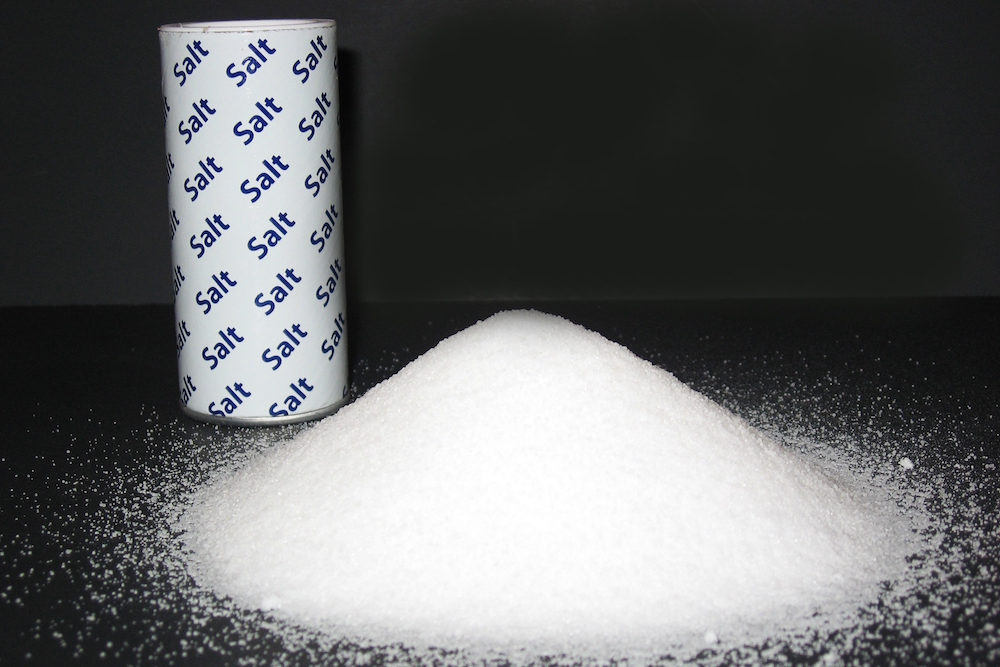Too Salty! High Sodium Intake Tied to Increased Blood Pressure

People who increase their salt intake significantly are at higher risk of developing high blood pressure, a large Japanese study finds.
Researchers looked at about 4,500 adults in Japan who had normal blood pressure at the beginning of the study. After following these people for three years and measuring their salt intake with an annual urine analysis, the researchers found that about 23 percent of the participants, or 1,027 people, developed hypertension, a condition known as high blood pressure.
People with high salt intake were 1.25 times as likely to develop high blood pressure by the end of the study, compared with people who had low salt intake, the researchers found. Likewise, the people who gradually increased their salt intake over the study period were also at higher risk for hypertension, they said. [10 New Ways to Eat Well]
"In our study, it did not matter whether their sodium levels were high at the beginning of the study or if they were low to begin with, then gradually increased over the years — both groups were at greater risk of developing high blood pressure," Dr. Tomonori Sugiura, lead author of the study and an assistant professor in the department of cardio-renal medicine and hypertension at the Nagoya City University Graduate School of Medical Sciences in Japan, said in a statement.
Other studies have previously shown the link between salt intake and increased blood pressure, but this is one of the first rigorous studies to examine people's salt intakes and blood pressures over time, according to the study, published online today (July 29) in the Journal of the American Heart Association.
At the end of the study, the participants' daily intakes of sodium ranged from 2,925 milligrams to 5,644 mg. The U.S. government recommended in a 2010 report that Americans limit their salt intake to 2,300 mg a day, and to 1,500 mg a day if they are 51 or older, African-American or at risk of developing hypertension, diabetes or chronic kidney disease. (The government is expected to release new guidelines by the end of 2015.)
Although the new study involved Japanese participants, its findings also apply to Americans, Sugiura said.
Sign up for the Live Science daily newsletter now
Get the world’s most fascinating discoveries delivered straight to your inbox.
"Americans consume an average of nearly 3,500 milligrams of sodium a day, which is about 1,000 milligrams more than any public health group recommends," he said. "Reducing sodium intake can save lives, save money and improve heart health — no matter what background or nationality a person is."
People can reduce their salt intake by eating less processed foods, such as breads, cold cuts, pizza and soup, which contain more than 75 percent of sodium found in U.S. diets, according to the American Heart Association. In fact, about nine out of 10 people in the United States consume too much sodium, according to the association.
Salt intake can increase blood pressure in some people because the salt causes the body to hold onto excess fluids, such as water. This can increase pressure within blood vessels and make the heart work harder, the association said. High blood pressure also increases the risk of heart attack, stroke and heart failure.
However, consuming moderate amounts of sodium may be the best road to take. A large 2014 international study showed that people who consumed between 3,000 mg and 6,000 mg a day had fewer cardiovascular problems and were more likely to survive over a four-year period than people who had either lower or higher salt intakes. (These "moderate" amounts of sodium may seem high, but the researchers of this study told Live Science that perhaps the current sodium guidelines need to be rethought, as just 4 percent of people in the study met them.)
The new research builds on this study as well as on other earlier studies to show that people with lower salt intake tend to have lower blood pressure, the researchers said.
"The present study actually observed and confirmed this important concept: The risk of developing hypertension is greater in those with relatively high dietary sodium consumption compared with those with relatively low sodium intake," the researchers wrote in the study.
Follow Laura Geggel on Twitter @LauraGeggel. Follow Live Science @livescience, Facebook & Google+. Original article on Live Science.

Laura is the archaeology and Life's Little Mysteries editor at Live Science. She also reports on general science, including paleontology. Her work has appeared in The New York Times, Scholastic, Popular Science and Spectrum, a site on autism research. She has won multiple awards from the Society of Professional Journalists and the Washington Newspaper Publishers Association for her reporting at a weekly newspaper near Seattle. Laura holds a bachelor's degree in English literature and psychology from Washington University in St. Louis and a master's degree in science writing from NYU.









